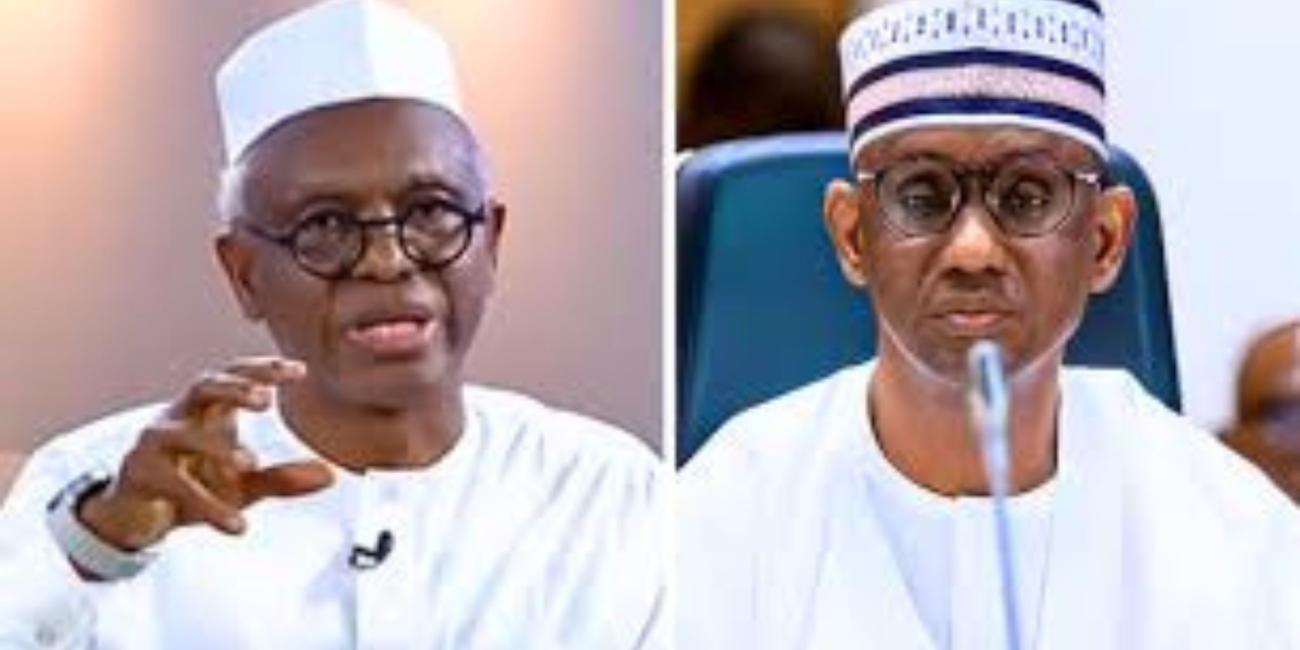
In a statement on Monday, El-Rufai dismissed the allegations as diversionary, insisting that his comments on national security during a recent live interview on Channels Television were rooted in facts.
Former Kaduna State Governor, Nasir El-Rufai, has fired back at the Office of the National Security Adviser (ONSA) and the Kaduna State Government following accusations that he was politicising security matters in Nigeria.
In a statement on Monday, El-Rufai dismissed the allegations as diversionary, insisting that his comments on national security during a recent live interview on Channels Television were rooted in facts.
“This is my response to the unfortunate statement from the Office of the National Security Adviser (ONSA) and the fake, but predictable hot air from Kaduna, following my live television interview on Channels Television last night,” he said.
According to him, the authorities have refused to address the core issues he raised, choosing instead to label his criticisms as politicisation.
“As usual, the combined voices of the Government of Kaduna State (KDSG) and ONSA, instead of responding to the core issues I raised, seek to deflect responsibility by alleging that exposing them amounts to politicising security. As a person whose three siblings served in the Nigerian Army and the Airforce, with one of them rising to the rank of general, I have and will continue to appreciate and honour the memory of our citizens in uniform who have made sacrifices for Nigeria. I will also continue to appreciate the immense work that continue to be done by gallant officers of the military and security agencies.”
He accused the ONSA of being at the center of political interference in security management.
“It is a well-known fact to discerning Nigerians that the face of the politicisation of national security for politically intended purposes resides, for the first time in our recent history, in the ONSA under its present leadership.”
El-Rufai further alleged incompetence and poor handling of terrorism and banditry in the North.
“If the ONSA thinks Nigerians are not following its unclear and incompetent management of terrorisim and banditry in Northern Nigeria and beyond, in collaboration with a certain senator, also from the North, then it is high time it carried out an in-depth evaluation and review of its actions.”
He also criticised payments allegedly being made by government officials to bandits in several northern states.
“We are not the first to reveal the government’s ongoing greasing of the palms of non-state actors in Kaduna, Katsina, Zamfara, Sokoto, Niger, Kebbi, and other states. No matter how incompetent in security matters he may be, the National Security Adviser cannot be oblivious of videos and audios of traditional rulers, community leaders and religious leaders condemning the payments made by the state to bandits. The attempt at denial falls flat as many citizens in the affected states have been following the counter-replies by community leaders and clerics on the issue of government paying bandits.”
El-Rufai insisted that his intervention echoed the frustrations of communities across the country who continue to suffer from banditry and terrorism.
“We spoke the minds of distressed communities across Nigeria who are victims of banditry and terrorism, and who are watching with pain the way and manner the ONSA, which ought to be discreet and purely carry out intelligence coordination, is now deeply involved in lousy protocol and public relations duties along with politically inclined security management at the expense of the expertise of trained professionals. This charade by ONSA is being done gleefully at a steep cost to the finances of the country and the ethical fabric of our society.”
He urged government to channel resources to the military and security agencies rather than indulge bandits.
“The constitutional, legal and patriotic duty the government owes on security is to better support our military and security agencies with more resources like personnel, equipment and technology, rather than further endangering the country by mollycoddling bandits.”
Posing further questions, he challenged authorities to explain the details of what they describe as negotiations with bandits.
“What exactly constitutes ‘negotiations with bandits’? Why is non-kinetic approach to addressing banditry and criminality equal to withdrawals of huge amounts of money from state treasuries and handing them over to bandits and terrorists? Which officials and their intermediaries deliver this money, and how much personal withholding tax do they apply before delivery of the funds? Who are the most prolific purchasers of prime real estate in Abuja in the last two years and what is the source of their new-found wealth? These are questions many discerning citizens are demanding answers, while officials of ONSA and KDSG are focusing on protocol, propaganda and international junkets!”
El-Rufai, during a television interview on Sunday, claimed the ONSA coordinated a policy of payments to criminals.
However, in a statement issued on Monday in Abuja, ONSA described the claim as baseless, insisting no such practice exists under the current administration.
The statement, signed by Zakari Mijinyawa, stressed that the government has consistently warned Nigerians against paying ransom, adding that military operations have decimated notorious bandit leaders in Kaduna State, including Boderi, Baleri, Sani Yellow Janburos, Buhari, and Boka.
It further noted that recent arrests of Ansaru leaders and the sacrifices of fallen security personnel were evidence of the government’s commitment to restoring peace in troubled areas like Igabi, Birnin Gwari, and Giwa.
ONSA urged political figures to stop dragging national security institutions into partisan controversies, emphasising that the fight against banditry should remain a collective effort rather than a political battleground.

